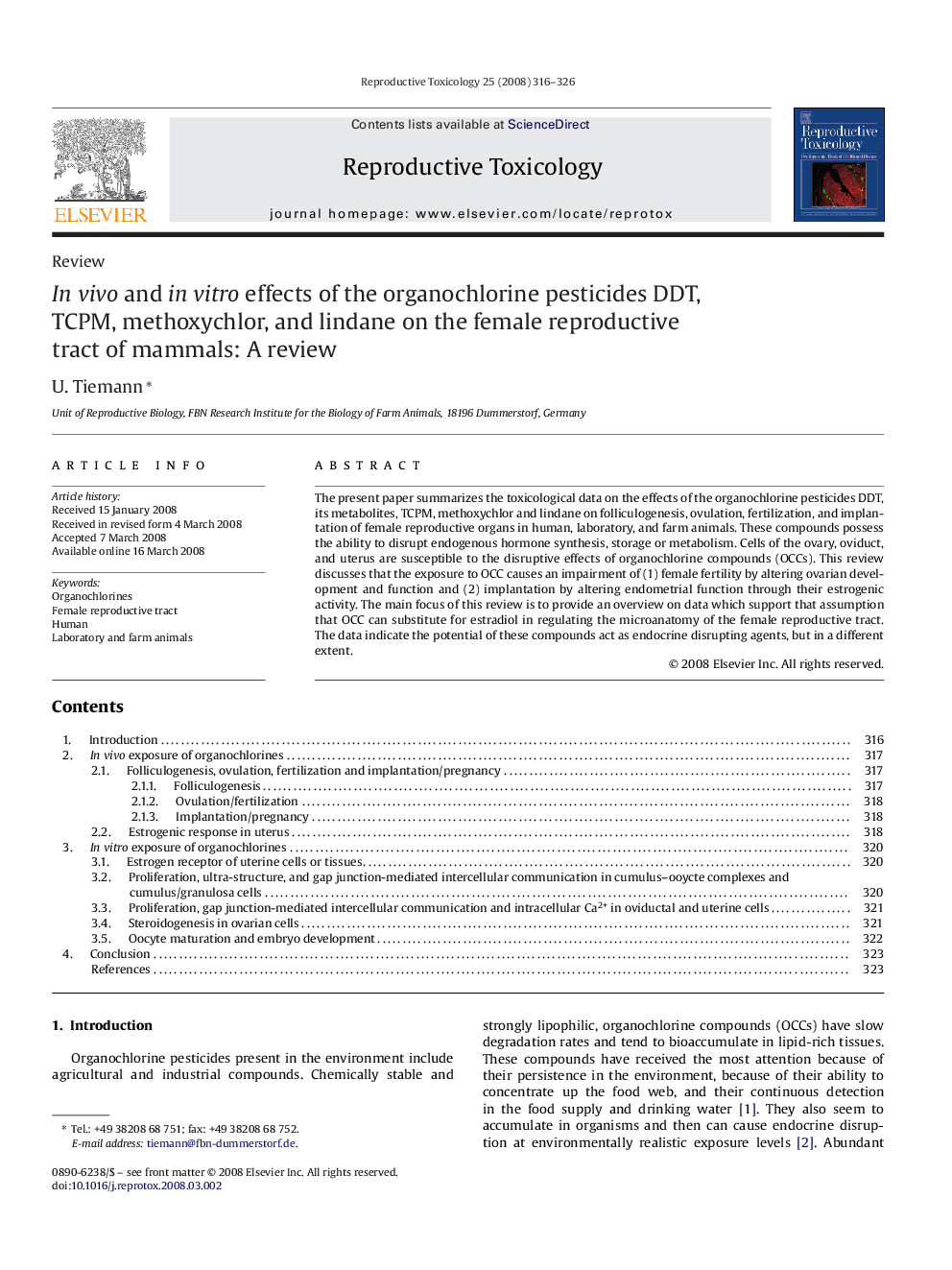| Article ID | Journal | Published Year | Pages | File Type |
|---|---|---|---|---|
| 2594779 | Reproductive Toxicology | 2008 | 11 Pages |
The present paper summarizes the toxicological data on the effects of the organochlorine pesticides DDT, its metabolites, TCPM, methoxychlor and lindane on folliculogenesis, ovulation, fertilization, and implantation of female reproductive organs in human, laboratory, and farm animals. These compounds possess the ability to disrupt endogenous hormone synthesis, storage or metabolism. Cells of the ovary, oviduct, and uterus are susceptible to the disruptive effects of organochlorine compounds (OCCs). This review discusses that the exposure to OCC causes an impairment of (1) female fertility by altering ovarian development and function and (2) implantation by altering endometrial function through their estrogenic activity. The main focus of this review is to provide an overview on data which support that assumption that OCC can substitute for estradiol in regulating the microanatomy of the female reproductive tract. The data indicate the potential of these compounds act as endocrine disrupting agents, but in a different extent.
